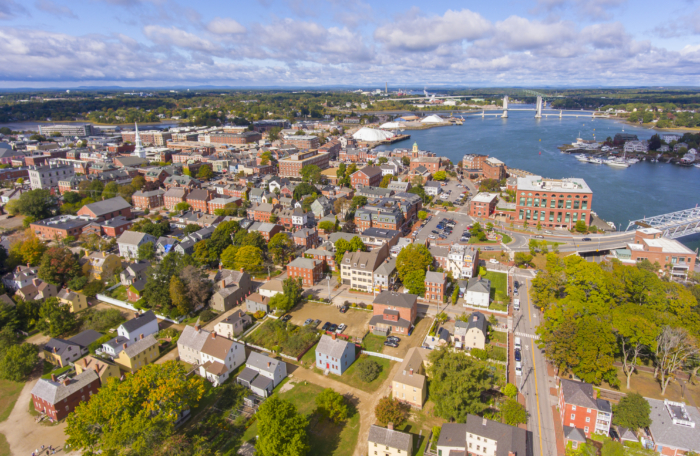Zoning and Portsmouth’s ‘cursed’ gas station
In May, Foster’s Daily Democrat reported the exciting news that celebrity chef Bobby Marcotte planned to convert an abandoned Portsmouth gas station into a unique Asian-Spanish fusion restaurant.
Portsmouth has a certain cachet, cultivated by its inhabitants as well as its government. One might think that a super-fashionable, high-concept restaurant helmed by a local celebrity chef would be just the sort of thing to sail through the city’s approval process.
One might also be unfamiliar with just how absurd local zoning restrictions can be.
On August 17th, the restaurant concept that was met with such fanfare in May was rejected by a 4-3 vote of the Zoning Board of Adjustment. The Portsmouth Herald report can be read here.
The reason for the rejection?
To make the restaurant work, Marcotte needed the ability to seat up to 100 customers during warm weather. The current zoning caps restaurant capacity at 50.
Larry Gormley, attorney for Marcotte and his business Partner Paul Simbilaris, explained that the converted space would seat 50 people inside year-round, with an additional 40-50 people outside on a new patio when weather permits.
The capacity would be “up to 90 or 100 at peak in the appropriate season,” Gormley said.
Board member Beth Margeson objected, saying the additional seating would bring too much traffic and parking to the neighborhood.
Gormley pointed out that the restaurant is within walking distance of the city’s new parking garage, which is where restaurant employees will be required to park.
Gormely didn’t say, but might have added, that the location is 0.4 miles (less than a 10 minute walk) from TWO parking garages, including the city’s new, $26 million Foundry Place garage, which the city itself acknowledges is only half full on a daily basis.
The city built that garage for the express purpose of enabling additional commercial activity in the city, given the relative scarcity of on-street parking.
The city has had several meetings to try to figure out how to increase the five-story garage’s use, as it has remained well under capacity since it opened in 2018.
And yet the Zoning Board of Adjustment continues to cite on-street parking as a reason to reject commercial development within a short walk of the multi-million-dollar taxpayer-funded garage.
“We think we’re presenting an amenity for people to walk to and from the area,” Gormley explained.
But a majority on the board couldn’t see that.
Some members fixated on the current zoning’s 50-seat capacity limit and the idea that an increase might have people parking on side streets when the patio is open.
Gormley didn’t even win over any board members when he described this restaurant’s food as “Asian-infused tacos.”
Not a single board member leapt up and screamed, “ASIAN TACOS!!”
Which seems weird. Not ASIAN TACOS. Those seem delicious. It seems weird that no one stood up and screamed, “ASIAN TACOS!!”
Even weirder, four Zoning Board members willingly chose an abandoned gas station over… ASIAN TACOS.
Not all board members chose a vacant service station over tacos filled, presumably, with things like General Tso’s chicken or seafood tempura.
Board member Arthur Parrott said the restaurant “will be a net gain to the neighborhood and the city as a whole because the one thing that’s clear to everybody is what’s there now is an eyesore and is long deserving of an improvement. Does a gas station belong there? No, but it’s there, and we have to deal with it.”
That’s precisely the choice the board had. It was either an abandoned gas station, or a 50-seat ASIAN TACO restaurant with an additional 40-50 seasonal patio seats.
But the nays envisioned a third option — a magical Ideal Use that would perfectly fit the zoning ordinance and be commercially viable for the long term, but which, mysteriously, no one has proposed in all the years the ordinance has existed.
“I think this is just too much restaurant use,” Margeson said.
She added later that the property is “just seemingly cursed or something, I don’t know.”
Explaining his yes vote, Parrott said he’s voted four times on proposals to convert the property to a better use, and yet it remains an eyesore gas station.
Given that record, maybe the property is cursed.
Maybe, just maybe, the curse is that city officials have dictated an extremely narrow range of approved uses for the property, none of which is economically viable under current market conditions.
A majority of the board imagines that on some glorious day, someone will appear before them and propose a use that is both profitable and consistent with the severe restrictions set by the city’s ordinance.
Until that day, however, they’ll ensure that the property remains an abandoned gas station.



